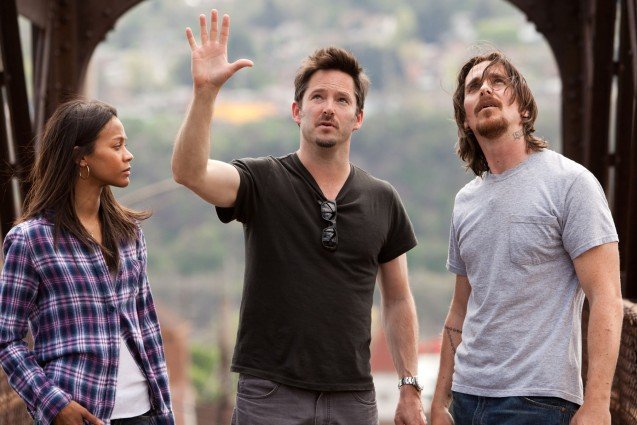
Scott Cooper has a wide gaze. This “actor’s director” has a knack for seeing the potential stories that lie in the periphery of Hollywood’s lazer focused vision, and highlight people that don’t get a light shined on them all that often. In his thriller, Out of the Furnace, Cooper weaves a tale about two brothers facing a supreme evil, but he also tells the story of a declining steel mill town that shows a real affection and admiration for the community and it’s people. We sit down with Cooper to discuss the hidden America he showcases in his films, what he thinks about the direction our country is headed in, and the role that actor Woody Harrelson most wanted to shed once filming stopped.
This isn’t an area we see in Hollywood films very often. What drew you to this place?
I am from the Appalachian Mountain region, which extends from Georgia to Maine. When I was promoting Crazy Heart, I spent some time in Pittsburgh and had been reading about the town of Braddock, Pennsylvania, and was really moved by the city’s plight and how the city had fallen on hard times like many small towns in America. But I loved the fact that the town was filled with people that remained, that were filled with courage and a sense of optimism that life would eventually get better, and I visited, and I found the town to just drip with atmosphere. [It was] just very cinematic and people were very welcoming so I wanted to set a film there. I wrote a screenplay around those citizens in the town and infused an air of personal history. That’s why I chose that region, because we also don’t see many films about Western Pennsylvania, or certainly where Woody Harrelson’s character is from, which is the Ramapo Mountains of New Jersey.
Do you think this story could have been set anywhere else?
It’s intrinsic to the people of Western Pennsylvania and that sense of human spirit and endurance and resilience, and as the grandson of a coal miner I thought it was important not to show an industry of people who were given many things, and it seemed to be the most fitting place for this character and this world.
Your script seemed to have some interesting things to say about the state of America.
I wanted to tell a personal story about what America is undergoing in the past five very turbulent years: a crumbling economy, soldiers returning from Iraq and Afghanistan and having no real job prospects, having a really difficult time assimilating back into society and the fact that we live in a violent nation. I wanted to weave all that into a personal narrative that spoke really about us as Americans. There’s a cycle of working-class life that I found appealing and far under-represented in American cinema.
Out of the Furnace is much more of a thriller than your last film. Is it different shooting a movie that relies more on suspense?
I didn’t approach it as a thriller, I approached it as a searingly realistic drama that happened to have very intense moments interspersed throughout. Both Crazy Heart and this film deal with the human condition and the human spirit and in this particular instance, I wanted this to be a more bracing and emotionally charged experience for not only the actors but also the viewer. I wanted the films to feel like they were directed by the same hand and to also feel like distant cousins of sort, to have a sort of melancholy end of line tone.
Woody Harrelson gives probably one of the most freighting performances of recent memory. How much of that was Woody and how much of that was on that page?
It was on the page, but when you have an actor as skilled as Woody who brings just a great amount a depth and a searingly and bracingly performance, we worked very hard on crafting the evil that would reside in him, and admittedly, Woody said it was the part that he was most ready to shed when he finished shooting. If you know Woody, you know he’s a thoughtful and kind and really intelligent and sweet man, but to see him play that type of evil is a testament to his abilities as actor.
Did you ever have to tell Woody to dial it back or take it up a notch?
You’re always directing and adjusting performances and trying to find the right tone and trying to fin truth. That’s my job as a filmmaker, to make everything emotionally truthful. If you see that truth on screen, then you know that I’ve done my job.


